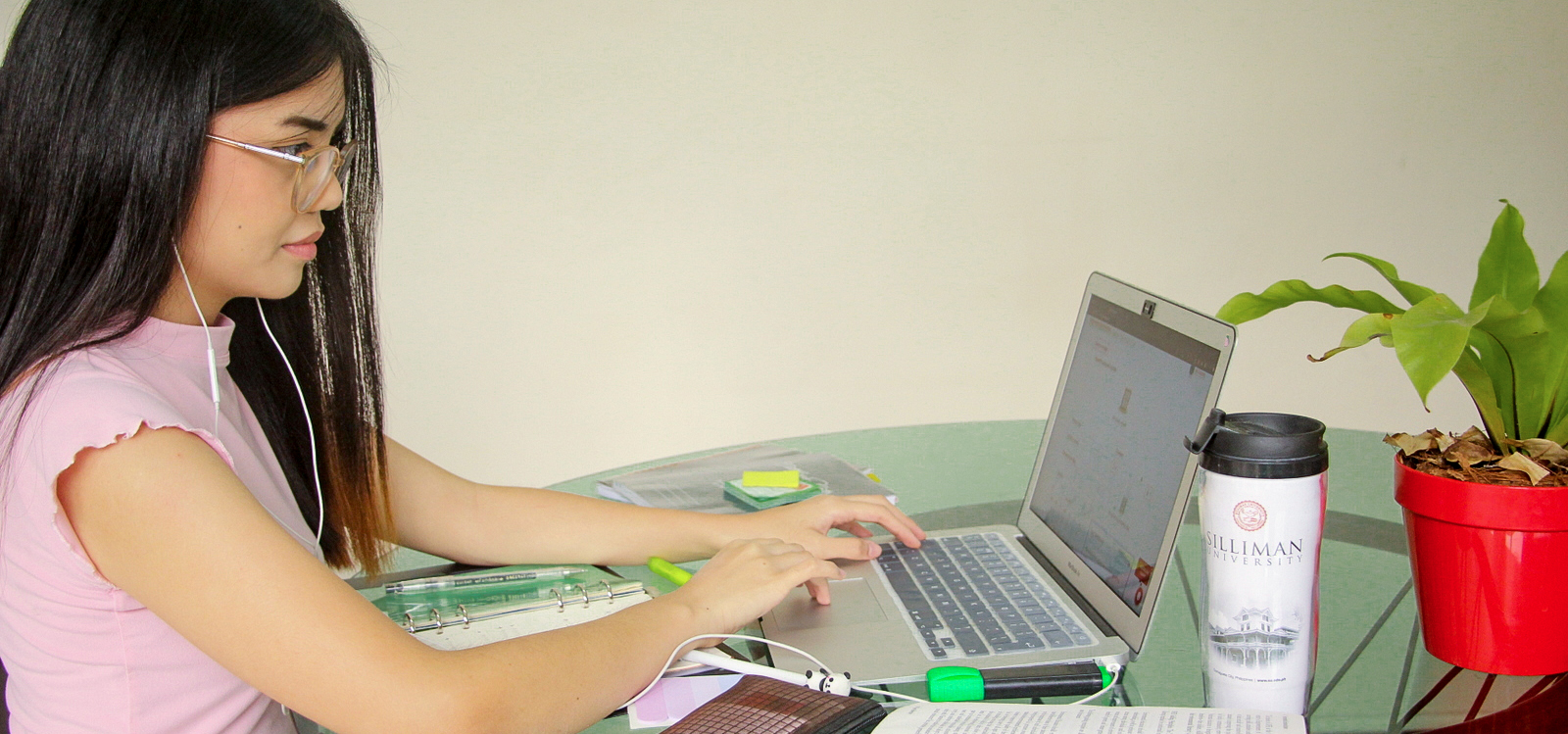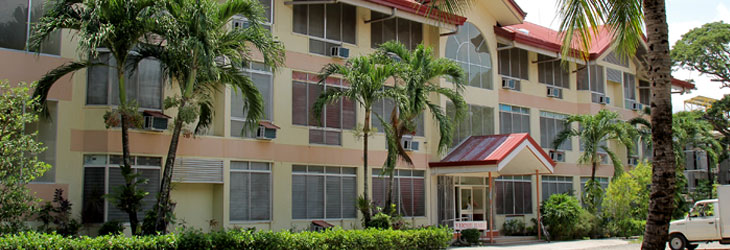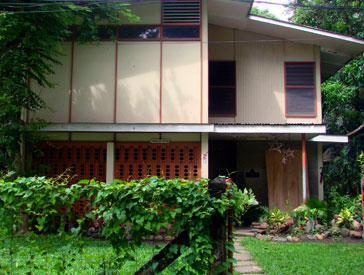
Silliman University, as a leading Christian institution committed to total human development for the well-being of society and the environment, unceasingly utilizes mySOUL, the constant partner to Silliman University’s technology-enhanced flexible learning, starting 2nd semester, SY 2022-2023.
Technology-enhanced onsite learning will be the modality starting the second semester, SY 2022-2023. All subjects/courses must be delivered on-campus, face-to-face, and in-person with mySOUL LMS to supplement and enhance teaching and learning.
|
TEACHING STRATEGIES FOR BLENDED AND HYBRID ONSITE LEARNING
Below is the list of teaching strategies that a teacher can utilize. A subject/course could have one or more teaching variants.
| Approach 1: Blended Learning | Approach 2: Hybrid Learning |
| Variants: 1. Conventional 2. Enriched 3. Advanced |
Variants: 1. Flipped 2. with Synchronous Online 3. rotational |
Silliman University supports technology-assisted flexible learning through mySOUL, the official learning management system of Silliman University. mySOUL is an all-in-one web-based software application for classroom organization, management, tracking, and monitoring. Specifically, it emphasizes technology-enhanced flexible learning that highlights flexibility in the teaching approaches and strategies, classroom and resources management, and assessment. All students are expected to come on campus and attend classes in-person. However, limited in-person or face-to-face interaction in the classroom shall be practiced.
With the current implemented flexible learning setup, mySOUL is capable of organizing offline (asynchronous) activities like assignments. Likewise, mySOUL is capable of conducting real-time (synchronous) activities like video conferencing. It is accessible athttps://soul.su.edu.ph. It is capable of any form of learning modality – blended, hybrid, and hy-flex deliveries.
List of Programs for SY 2020-2021
Undergraduate
College of Agriculture
- Bachelor of Science in Agricultural Business
- Bachelor of Science in Agriculture major in Agronomy
- Bachelor of Science in Agriculture major in Animal Science
College of Arts and Sciences
- Bachelor of Arts in Anthropology
- Bachelor of Arts in Creative Writing
- Bachelor of Arts in Filipino
- Bachelor of Arts in History
- Bachelor of Arts in English major in English Language Studies
- Bachelor of Arts in English major in English Across the Professions
- Bachelor of Arts in Literary and Cultural Studies
- Bachelor of Arts in Literature Across the Professions
- Bachelor of Arts in Philosophy
- Bachelor of Arts in Political Science
- Bachelor of Arts in Physics
- Bachelor of Arts in Sociology
- Bachelor of Science in Biology
- Bachelor of Science in Chemistry with Certificate in Chemical Technology
- Bachelor of Science in Mathematics
- Bachelor of Science in Physics with Emphasis in Computer Applications
- Bachelor of Science in Psychology
- Bachelor of Science in Social Work
- Bachelor of Science in Pharmacy
College of Business Administration
- Bachelor of Science in Accountancy
- Bachelor of Science in Business Administration major in Business Analytics
- Bachelor of Science in Business Administration major in Economics
- Bachelor of Science in Business Administration major in Financial Management
- Bachelor of Science in Business Administration major in Human Resource Management
- Bachelor of Science in Business Administration major in Operations Management
- Bachelor of Science in Business Administration major in Marketing Management
- Bachelor of Science in Economics
- Bachelor of Science in Entrepreneurship
- Bachelor of Science in Office Systems Administration
College of Computer Studies
- Bachelor of Library and Information Science
- Bachelor of Science in Computer Science
- Bachelor of Science in Information Systems
- Bachelor of Science in Information Technology
College of Education
- Bachelor of Alternative Learning System
- Bachelor of Early Childhood Education
- Bachelor of Elementary Education
- Bachelor of Inclusive and Special Needs Education
- Bachelor of Physical Education major in Physical Education
- Bachelor of Physical Education major in Sport and Wellness Management
- Bachelor of Secondary English Language Education
- Bachelor of Secondary Filipino Language Education
- Bachelor of Secondary Mathematics Education
- Bachelor of Secondary Science Education
- Bachelor of Secondary Social Science in Education
- Bachelor of Technology and Livelihood Education
- Bachelor of Secondary Values Education
- Bachelor of Science in Nutrition and Dietetics
College of Engineering and Design
- Bachelor of Science in Architecture
- Bachelor of Science Civil Engineering
- Bachelor of Science in Computer Engineering
- Bachelor of Science in Electrical Engineering
- Bachelor of Science in Mechanical Engineering
College of Mass Communication
- Bachelor of Mass Communication
- Bachelor of Mass Communication major in Broadcasting
College of Nursing
- Bachelor of Science in Nursing
College of Performing and Visual Arts
- Bachelor of Fine Arts major in Studio Arts
- Bachelor of Music in Music Composition
- Bachelor of Music in Music Education
- Bachelor of Music in Music Performance major in Piano
- Bachelor of Music in Music Performance major in Voice
- Bachelor of Music in Music Performance major in Choral Conducting
- Bachelor of Performing Arts major in Speech and Theater
- Bachelor of Music major in Music Therapy
Institute of Clinical Laboratory Sciences
- Bachelor of Science in Medical Technology
Institute of Rehabilitative Sciences
- Bachelor of Science in Physical Therapy
Institute of Environmental and Marines Sciences
- Bachelor of Science in Marine Biology
- Bachelor of Science in Environmental Science
Divinity School
- Bachelor of Theology major in Pastoral Ministry
- Bachelor of Liturgy and Music
- Bachelor of Liturgy and Church Music
School of Public Affairs and Governance
- Bachelor of Science in Foreign Affairs
- Bachelor of Science in Public Administration
College of Law
- Juris Doctor
School of Medicine
- Doctor of Medicine
Graduate and Post Graduate Programs
Agriculture
- Master of Applied Science in Agricultural System
- Master of Science in Agriculture major in Sustainable Agriculture
- Master of Science in Agriculture major in Agriculture Extension
Arts and Sciences
- Master of Arts in Teaching Mathematics
- Master of Science in Mathematics
- Master of Arts major in Anthropology (thesis and non-thesis)
- Master of Arts major in Sociology (thesis and non-thesis)
- Master of Arts major in Extension Administration
- Master of Arts major in Filipino
- Master Arts major in History
- Master of Arts in English major in English Language Studies
- Master of Arts in English major in Literary Studies
- Master of Arts in English major Creative Writing
- Master of Arts in English major in Teaching English to Speaker of Other Languages
- Master of Arts in English (non-thesis)
- Master of Arts in Philosophy
- Master of Arts in Psychology major in Industrial Organizational Psychology
- Master of Arts in Psychology major in Social and Community Psychology
- Master of Arts in Psychology major in Counseling Psychology
- Master of Arts in Science Teaching in Physics
- Master in Sociology (non-thesis)
- Master in Biology (non-thesis)
- Master of Science in Physics
- Master of Science major in Social Work
- Master of Science in Mathematics
- Master of Public Administration
- Master in Public Health
- Master in Physics
- Doctor of Philosophy in English and Literature
- Doctor of Philosophy in Psychology
Business Administration
- Master in Business Administration
Computer Studies
- Master in Information System
Divinity School
- Doctor of Theology in Biblical Studies
- Doctor of Theology in Cristian Ethics
- Doctor of Theology in Systematic Theology
Education
- Master of Arts in Education major in Educational Management
- Master of Arts in Education major in English Teaching in Elementary School
- Master of Arts in Education major in English Teaching in High School
- Master of Arts in Education major in Guidance and Counseling
- Doctor of Education
- Doctor of Philosophy in Education
Engineering
- Master of Engineering major in Civil Engineering
- Master of Engineering major in Computer Engineering
- Master of Engineering major in Electrical Engineering
- Master of Engineering major in Mechanical Engineering
Environmental and Marine Science
- Master of Science in Coastal Resource Management
- Master of Science in Environmental Science
- Master of Science in Environmental Policy
- Master of Science in Marine Biology
- Master of Tropical Biological Oceanography in Research
- Doctor of Philosophy in Marine Biology
Nursing
- MS in Nursing (Thesis & Non-thesis) majors in Adult Health
- MS in Nursing major in Community Health Nursing
- MS in Nursing major in Family Nursing Practice
- MS in Nursing major in Nursing Administration
- MS in Nursing major in Psychiatric Mental Health Nursing
- Doctor of Philosophy in Nursing
Performing and Visual Arts
- Master in Music major in Choral Conducting
- Master in Music major in Instrumental Conducting
- Master in Music major in Ethnomusicology
- Master in Music major in Music Education
Public Affairs and Governance
- Master of Public Administration
- Master of Arts in Hospital Administration
- Master of Environmental Governance
- Doctor of Philosophy in Social Science
- Doctor of Public Administration
Certificate Programs
Arts and Sciences
- Associate in Chemical Technology
- Certificate in Human Resource Management, Psychology, Women’s Studies, Southeast Asian Studies, Philippine Studies, Coastal Resource Mgt., Teaching Philosophy, Teaching English to Speakers of Other Languages (TESOL), Poetry Writing, Short Fiction Writing, Playwriting, Critical Writing, Museology, Chemical Technician.
Divinity School
- Associate in Liturgy and Church Music
- Certificate in Church Music, Liturgy, Clinical Pastoral Education
Education
- Certificate in Career Guidance, Professional Education
Mass Communication
- Certificate in Environmental
Service-Learning
- Certificate in Community Organizing, Service-Learning
Agro-Industrial & Technical Education
- Animal Production NC II (Chicken Poultry, Swine), Bread & Pastry Production NC II,
- Cookery NC II, Java NC IV, Computer System Servicing NC II
PERFORMING & VISUAL ARTS
- Associate in Music specializing in: Choral Conducting, Musical Theater, Opera, Bandurra, Octavina, Laud
- Advance Certificate in Music specializing in Music Technology, Dance, Guitar, Piano, Voice, Cornet, Clarinet, Baritone, Tuba/Sausaphone, Saxophone Trumpet, Trombone, Flute, French Horn
- Certificate in: Choral Conducting, Sacred Music, Theatre Design & Stage Craft, Play Production, Speech Improvement, Studio Fine Arts-Painting (non-credit), Concept Art Development (non-credit)
SCHOOL CALENDARS
Collegiate
Senior High School
Junior High School
Elementary School
Early Childhood School
HOUSING

Going away to college can mean major lifestyle changes for students who are living away from home for the first time. Dormitory living can make the transition easier, combining the opportunity for freedom and fun with reassuring comfort and security.Residence life at Silliman University provides a balance between the educational and social needs of students, such as lectures and discussions, athletics, spiritual, social and cultural programs, and other experiences.Silliman University operates regular and cooperative dormitories. These dormitories provide comfortable living conditions for approximately 700 students.
View: Room & Board Rates
Regular Dormitories
There are three regular dormitories for women and two for men. These dormitories are directly supervised by dorm managers who are full-time staff of the University. Two identified regular dormitories provide accommodation for high school students: Davao Cottage for girls and Doltz Hall for boys.
The regular dormitories are the following:
- Edith Carson Hall
- Larena Hall
- Woodward Hall
- Vernon Hall
- Doltz Hall
- Davao Home
- Channon Hall
- Pulido Pad
- Woodward Hall Apartment
Cooperative Dormitories
 There are two cooperative dormitories for women and three cooperative dormitories for men on the main campus. Cooperative dormitories have advisers who are either University staff or selected graduate students.
There are two cooperative dormitories for women and three cooperative dormitories for men on the main campus. Cooperative dormitories have advisers who are either University staff or selected graduate students.
The residents undertake housekeeping and the planning of the food. The adviser is authorized to collect the board money, which is payable two months in advance, and other incidental fees approved by SHRD and SPS. Lodging is paid direct to the Business and Finance Office.
The following are the cooperative dormitories on the main campus:
WOMEN
- Azucena Cottage
- Sampaguita Cottage
MEN
- Ipil Cottage
- Molave Cottage
- Narra Cottage
Channon Hall – Now fully integrated with dorm system. There are more non-divinity female residents there. It’s considered a regular dorm except that a cook prepares the fixed board
Occidental Hall – a guest dorm that accommodates semi transients for foreign students on short term special courses as well as alumni, friends and parents.
Davao Cottage – Dorm for high school girls.
Meals for Cooperative Dormitories– Payments are accepted upon entrance to the dormitory.
Additional Charges:
- Dorm Application Fee – P100.00
- **Aircon rooms plus actual electric consumption
- Damage Deposit – 1,000.00 for Reg. Dorms and (Refundable P500.00 for Coop Dorms
- Use of electrical appliances
- All rooms w/fans plus 50.00/mo. Above the ordinary rooms
Schedule of Payments for Board & Lodging Fees
- Downpayment -25% of the full payment + (100.00 processing fee if new applicant)
- Prelim Payment -25% of the full payment
- Midterm Payment -25% of the full payment
- Final Term Payment -25% of the full payment
NOTE: Summer Term (full Payment) – 40% of the full payment
Admission Policies
Freshmen and sophomore students who are not from the city are given priority in accommodation. Limited accommodation slots are available for juniors and seniors. Admission is based primarily on good behavior with the final approval by the SHRD office. Reservation for vacancies must be made prior to enrollment.
A dormitory applicant must:
- Submit a fully accomplished application form to the SHRD.
- Be personally interviewed by the SHRD head and/or his/her representative.
- Make the necessary down payment equivalent to 1/4 of the total semestral board and lodging fees and a processing fee of one hundred pesos (P100.00) at the Business and Finance.
- Present the official receipt of payment to SHRD.
Advisory: For room assignment, residents are encouraged to see or call the dormitory manager on or before the enrollment period. No student should come to Silliman University expecting reserved space in the dormitory unless he has gone through the process indicated above.
Student Resident Counselors
Student resident counselors are upper-class residents designated as Big Brods and Big Sisters in their dormitories who assist students, especially freshmen and new students. They are selected for their familiarity with campus and dormitory life, leadership experience, training, good academic performance and general desire to help students. Their responsibilities include helping freshmen with personal and academic problems, and other concerns that need action from the dormitory administration.
Dormitory Officers
Each dormitory is encouraged to elect officers in order to deliberate, decide and effect activities to enrich living experiences. The governing body for each dorm varies, but generally consists of a president, vice president, secretary, treasurer, social chairperson, and religious life chairperson. Dorm meetings, scheduled regularly throughout the school year, give residents a chance to become acquainted with one another, plan activities, discuss problems, and become acquainted with dormitory and campus activities.
All inquiries regarding dormitory service should be addressed to the Student Housing and Residence Division, Office of Student Personnel Services, at the Ground Floor, Hibbard Hall.
Schedule of Payments for Board and Lodging
- Down Payment – 25 % of the full payment + (Php 100.00 processing fee, if new applicant)
- Prelim Payment – 25 % of the full payment
- Midterm Payment – 25 % of the full payment
- Final Term Payment – 25 % of the full payment
- Summer Term – Full Payment
Note: All rates are subject to change.
Additional Charges:
- Dorm Application Fee – Php100.00
- ** Actual electric consumption for air-conditioned rooms
- Damage Deposit (Refundable) – Php1,000.00 for Regular Dorms and Php500.00 for Cooperative Dorms
- Use of electrical appliances
- All rooms w/ fans include an additional Php50.00 per month
Withdrawal of Payments
Withdrawal from the dormitory for any reason other than sickness or physical injury should be done within the first week after the start of classes to avail of full refund of down payment less the processing fee. Students withdrawing after this period shall be charged as follows:
- If a student leaves the dorm before the first 15 days of classes, 25% of the semester lodging cost shall be charged.
- If a student leaves the dorm after the 15th day of classes, the latter shall be charged for the entire semester lodging cost.
- If a student moves in the dorm at the middle of the semester and withdraws, the counting of the first 15 days will start on the day he/she moves in the dorm.
- During summer school, 50% of the payments will be charged for withdrawal within the first three days of classes; 100% of the payment shall be charged after this period.
- In cases of payment refund, only residents who withdraw from the dormitory upon the recommendation/endorsement of the Dormitory Management and other reasons approved by the VPAA, one honorably withdraws from the University, will be granted refund.
- The Office of Student Services shall not endorse the University Clearance Form of the student if the charges are not fully paid.
A student withdrawing his/her dormitory space by reason of sickness or physical injury must submit a medical certificate and a clearance endorsed by the dormitory adviser/manager and head of the SHRD and approved by the Dean of Students. For withdrawal of enrolment, a copy of the leave of absence endorsed by the dean or principal and approved by the Vice-President for Academic Affairs must be submitted to the Office of the Student Affairs.
The Office of Student Affairs shall not endorse the University Clearance Form of the student if the charges are not fully paid.


